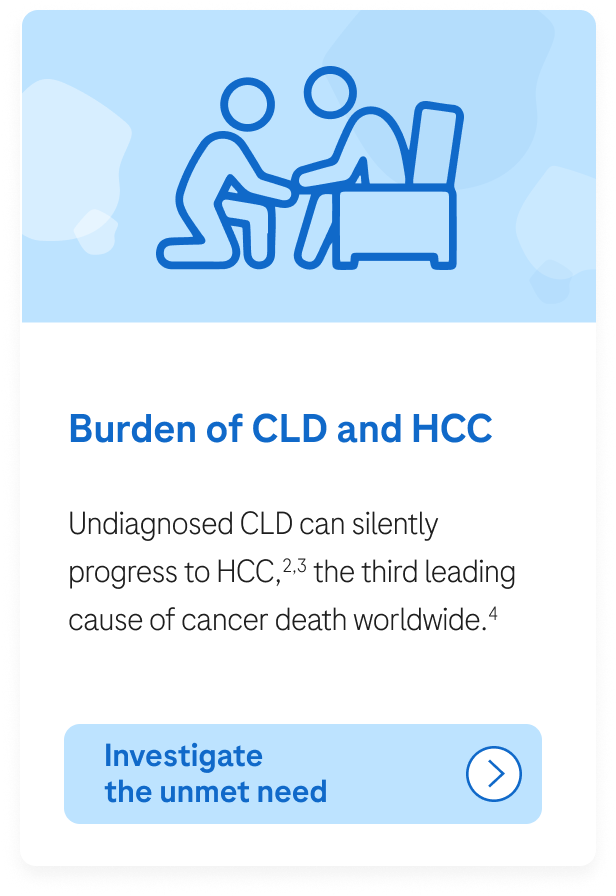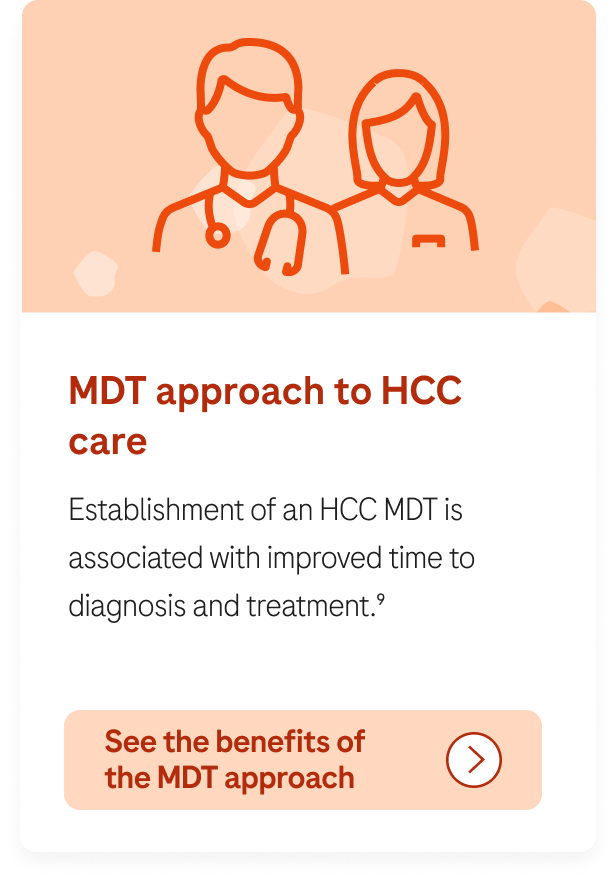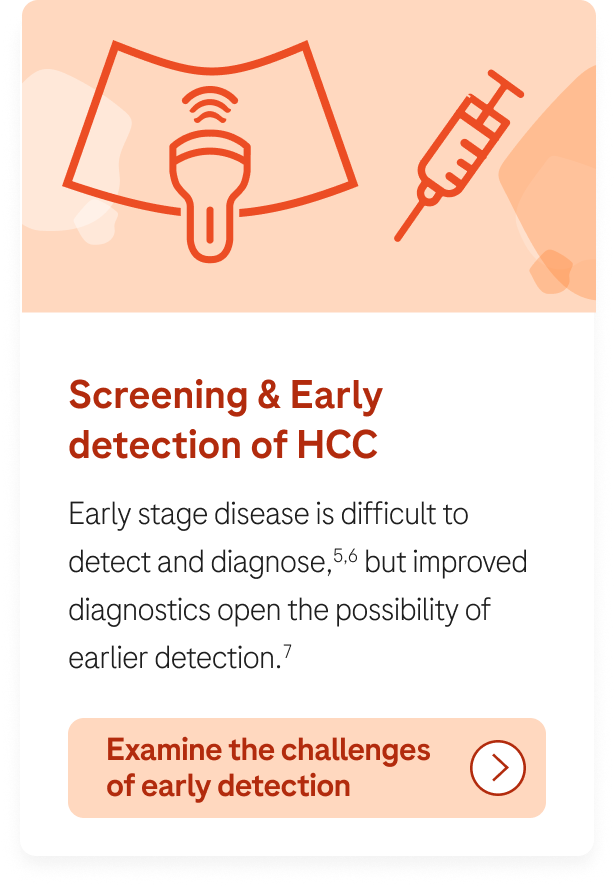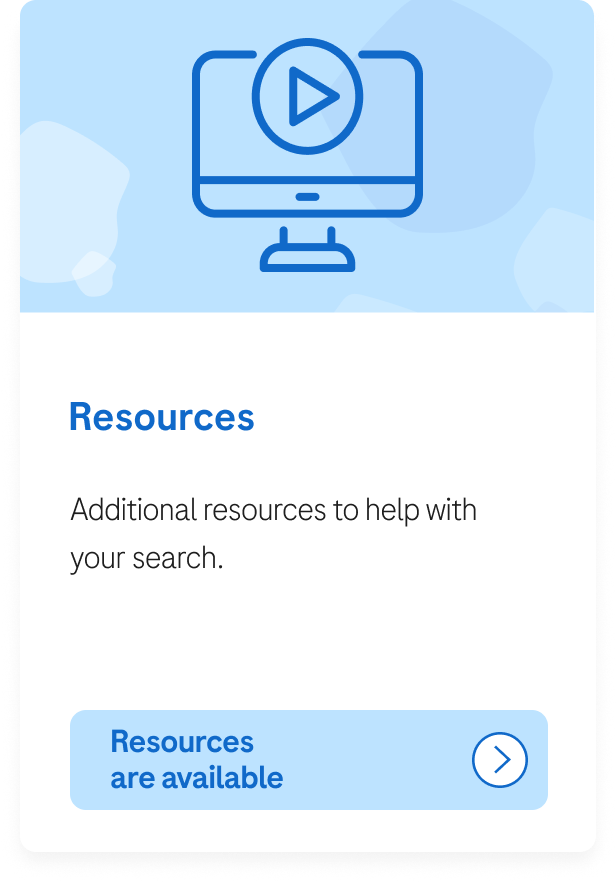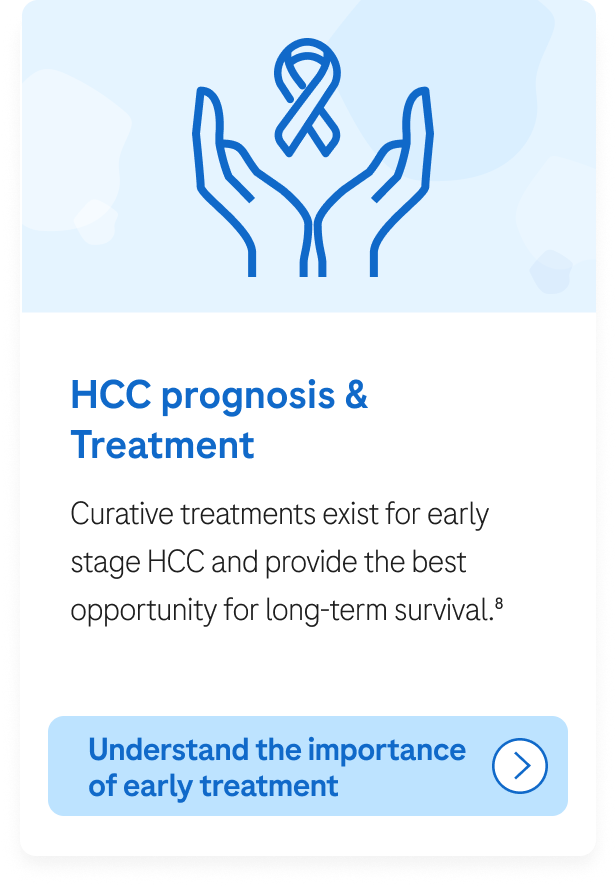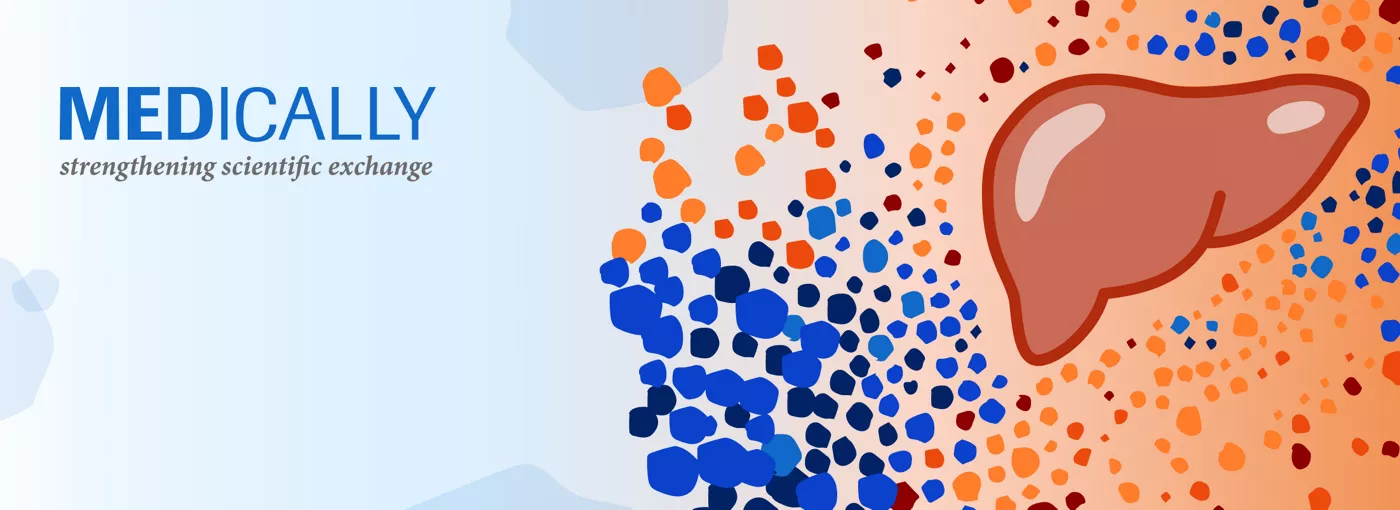
OneLiver
Science Hub
on chronic liver disease and liver cancer, including
disease burden, early detection and treatment,
and the benefits of multidisciplinary management.
Welcome to OneLiver Science Hub
Together, let’s stop chronic liver disease and, one day, cure HCC
Around one in five people globally suffer from chronic liver disease (CLD),1 despite 90% of cases being preventable.2 This usually undetected disease silently progresses to hepatocellular carcinoma (HCC), the third leading cause of cancer death.3,4
If something doesn’t change, it is predicted that deaths from liver cancer will increase by more than 50% by 2040.3
OneLiver Science hub is a repository of information on chronic liver disease and hepatocellular carcinoma, examining the increasing burden of global disease, discussing the unmet clinical need for screening of patients at risk of HCC and the benefits of early detection, through patient prognosis by disease stage and available treatments between early and advanced disease, and finally the benefits of managing patients with a dedicated HCC MDT and the barriers and avenues to building a successful clinical team.
Our OneLiver mission is to help stop, or even reverse the disease, and our ambition is to one day cure it. Our core expertise will continue to focus on cutting-edge diagnostics and treatment. To enable greater impact, partnerships are key. We want to work together with liver specialists, researchers and patient organisations on ambitious programmes across the disease continuum to prevent progression and ultimately save lives.

References
1. Cheemerla S. and Balakrishnan M. Clin Liver Dis (Hoboken) 2021;17:365–370.
2. Macpherson I, et al. Frontline Gastroenterol 2022;13:367–73.
3. Rumgay H, et al. J. Hepatol. 2022;77:1598–1606.
4. Sung H, et al. CA Cancer J Clin 2021;71:209–49.
5. Vogel A, et al. Ann Oncol. 2021;32(6):801–5.
6. Reig M, et al. Journal of Hepatology 2022;76:681–93.
7. Ginès P, et al. Hepatology. 2022;75(1):219–22.
8. Zhu XD, et al. Genes & Diseases 2020;7:359–69.
9. Yopp AC, et al. Ann Surg Oncol 2014;21(4):1287–95.
